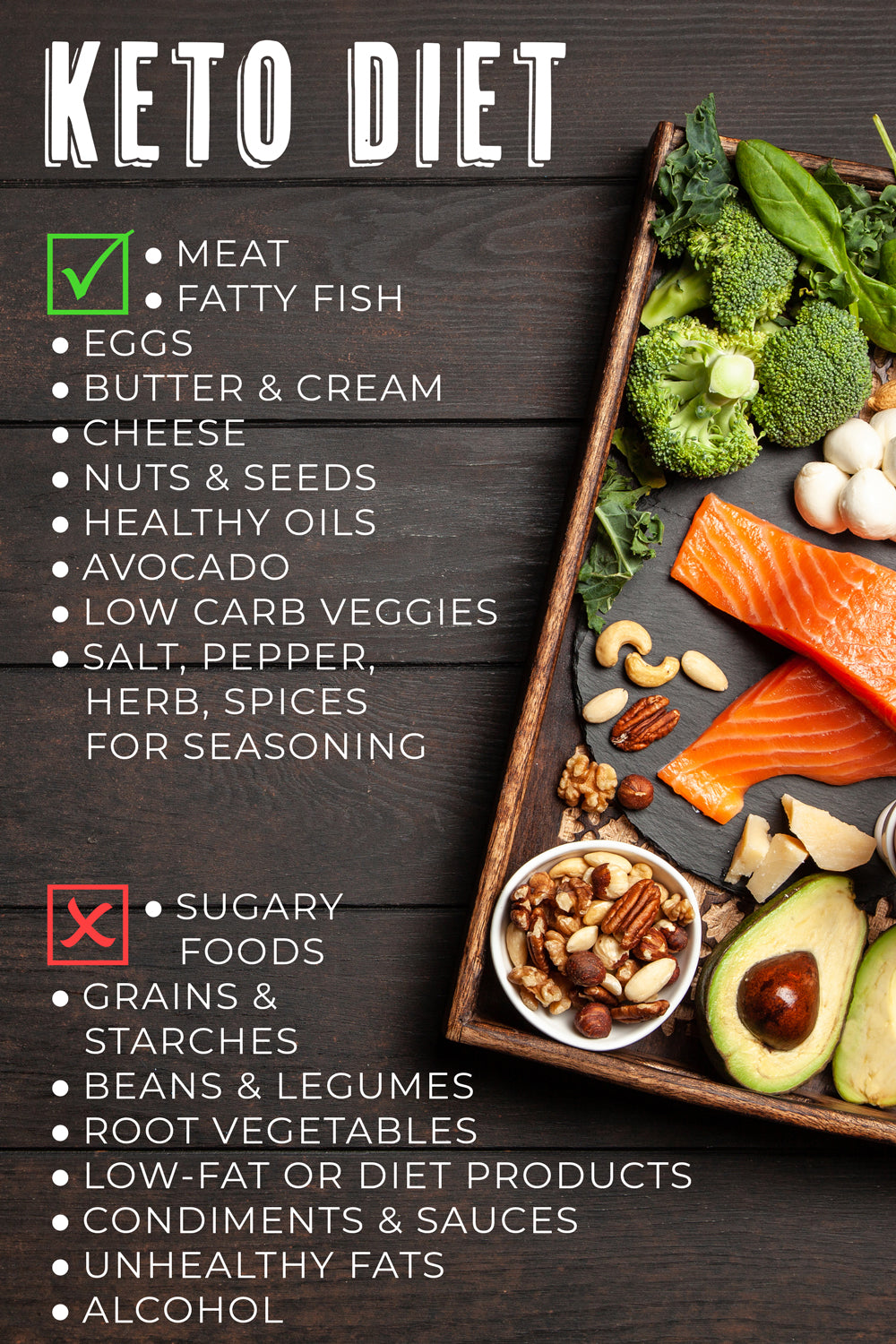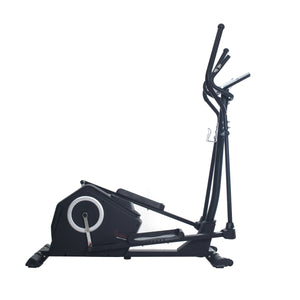The ketogenic diet, or keto diet is a low-carb, high-fat diet that has become extremely popular in recent years thanks to the many health benefits it offers. However, just like any diet, there are advantages and disadvantages to consider when determining if a diet is right for you. Read on to learn more about the keto diet and how it may support your health and fitness goals.
What is the Keto Diet?
The keto diet is a low-carb, high-fat diet similar to many other low-carb diets out there. What makes the keto diet stand out from other similar diets, is rather than simply being “low-carb”, it involves drastically reducing the carb intake in your diet and replacing it with fats.
This high reduction in carbs (specifically to 5% carb intake) puts your body in a metabolic state called ketosis. Ketosis is basically when the body becomes incredibly efficient at burning fat for energy. When carb intake is extremely low, your body must rely on burning fat for energy rather than its preferred energy source, carbohydrates. During ketosis, your liver will turn fat into ketones, which can supply energy for the brain in place of carbs.
Keto Diet Benefits
A ketogenic diet can aid in weight loss efforts. Thanks to a relatively high intake of fat and/or protein, this diet is also designed to keep you feeling full and satisfied; which means while losing weight you won’t struggle with feelings of hunger.
A reduction of carbs in the diet can also decrease blood sugar levels and insulin spikes. In combination with its weight loss benefits, the keto diet has the potential to provide benefit for a wide variety of health conditions, a widely expanding area of research.
How the Keto Diet Stacks Up to a Regular Diet
There are a variety of versions of the keto diet out there. The most popular include the standard keto diet, and high-protein keto diet - both of which limit carbs to only 5% of total intake. Below is a comparison of intake percentages for all three macronutrients - fat, protein, and carbs - for the two most popular keto diets, as well as the standard western diet.
Standard Ketogenic Diet
- Low-carb, moderate-protein, high-fat diet.
- 75% fat
- 20% protein
- 5% carbs
High-Protein Ketogenic Diet
- Similar to standard but includes more protein.
- 60% fat
- 35% protein
- 5% carbs
Standard Diet
- 20-35% Fat
- 10-35% Protein
- 45-65% Carbs
What to Eat and What to Avoid on Keto Diet
| Eat | Avoid |
|
Meat (Poultry, Pork, Beef, etc.) |
Sugary Foods (Soda, Juice, Smoothies, Desserts, etc.) |
|
Fatty Fish (Salmon, Tuna, etc.) |
Grains & Starches (Wheat, Rice, Pasta, Cereal, etc.) |
|
Eggs (Pasture or Omega-3 if possible) |
Beans & Legumes (Beans, Chickpeas, Lentils, Peanuts, etc.) |
|
Butter and Cream (Grass fed when possible) |
Root Vegetables (Potatoes, Carrot, Parsnip, etc.) |
|
Cheese (Unprocessed, whole-milk cheese) |
Low-Fat or Diet Products (Typically high in carbs and processed) |
|
Nuts & Seeds (Almonds, Walnuts, Flax, Chia, etc.) |
Condiments & Sauces |
|
Healthy Oils (Olive Oil, Avocado Oil) |
Unhealthy Fats (Mayonnaise, Vegetable Oil, etc.) |
|
Avocado |
Alcohol (High in carbs and can throw out of Ketosis) |
|
Low Carb Veggies (Green Veggies, Tomatoes, Onions, Peppers, etc.) |
|
|
Salt, Pepper, various Herbs & Spices to season food |
Keto Diet Considerations
There are a few important considerations that should be made when implementing or thinking about starting the keto diet. While the keto diet may be great for some, it’s not for everyone.
Solid Nutrient Intake
Because of the lack of fruit, vegetable, and grain sources, it’s easy to fall short on micronutrient needs while participating in a keto diet. Keeping careful track of your vitamin and mineral intake will be important to ensure you are getting all of the nutrients your body needs to thrive.
Carefully consider the nutrients you can include regularly in your diet. If you find you’re falling short on micronutrient needs, a multivitamin, or more specific supplementation can help fill any needs. If you are concerned with your overall nutrient levels, ask your doctor for a blood test as well as advice on how to properly fuel your body's needs.
Physical Performance
Another important consideration is carbs are incredibly important for physical performance. If you are training to increase muscle mass or size or participating in high intensity training a keto diet may not be best suited to you. Carbs promote recovery, produce insulin which aids in nutrient delivery and absorption, provide fuel for moderate to high intensity exercise, reduce muscle breakdown, and improve overall energy output.
Furthermore, fat as an energy source may not be able to provide energy fast enough for the demands of those participating in high-demand, high intensity activities. However, according to research, low to moderate intensity exercise performance depends on more fat for energy, and performance is not significantly affected by a low-carb diet, and a low carb diet may increase fat burn during exercise.
Bottomline, consider your exercise routine. If you participate in a simple, low-intensity exercise routine; a low-carb, keto diet may work for you. If you have performance-based goals, or regularly participate in HIIT or high intensity training, expect to feel a performance and energy decrease with a keto diet, or fuel your body best by providing it the carbs it needs to thrive during performance-based activities.
























Add Your Name & Email
Please enter your name and email to continue.We won’t display your email publicly.